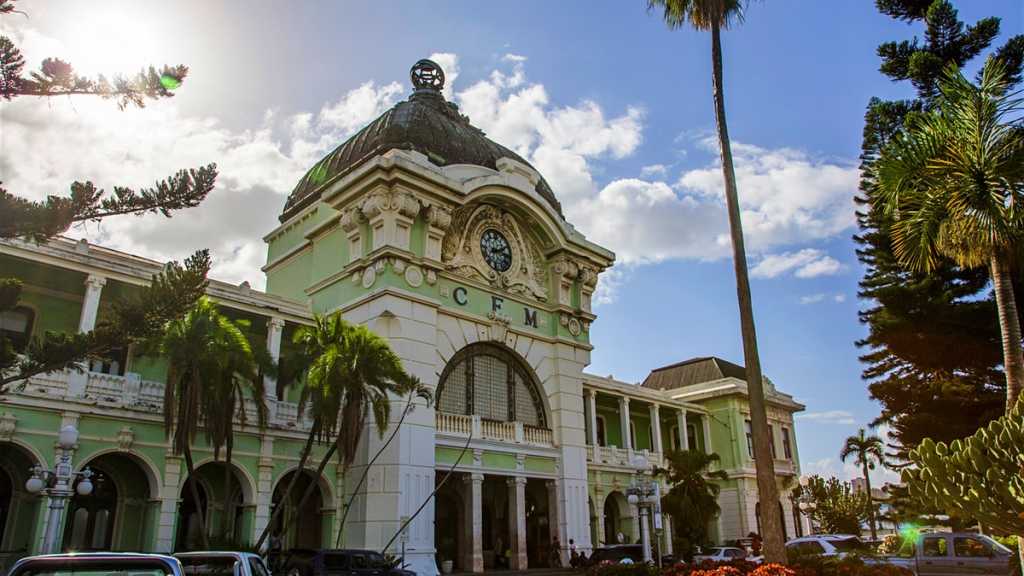Maputo, an old port city called Lourenço Marques, became the capital of Mozambique in 1975 during the independence of the country. The civil war of 1977 to 1992 made the country one of the poorest in the world. Since 2010, Maputo has once again become one of Mozambique's most dynamic urban centers and one of the most active ports in Southern Africa.
Between its discovery in 1502, by Portuguese navigators, and the mid-nineteenth century, the region was successively explored and controlled by the Dutch, Austrians, French and Portuguese who established trading stations or military posts.
There are vestiges of this colonial architecture, for example through the Estação Ferroviária (central station) and the Casa de Ferro (iron house), designed by architects of Gustave Eiffel's school.
Today, Maputo is a modern city, home to 2 million people, will captivate you with its museums, bars, cultural centers, craft shops, places of life, many and always lively, vibrant!
In tourism, the southern coast of Mozambique is the most developed area. This popularity is amply justified. From the spectacular Ponta d'Ouro to the peaceful lagoons and coastal lakes between Bilene and Zavora, and the legendary beaches of Tofo and Barra, the region has some of the most beautiful stretches of sand in Africa. The South also has a myriad of cultural treasures, including the famous timbila (xylophone) orchestras of the chopi people, and a rich folkloric fabric mostly from the ancient kingdom of Gaza.
- The south of Mozambique pairs well with a stay in Mpumalanga (and Kruger National Park in particular) but also with a stay in Kwazulu-Natal "Coastal" via Kosi Bay for example
- It's the South of Mozambique that will allow you to have your best encounters with dolphins ... to program absolutely!
- The Mozambican food is recognized especially for marrying seafood, fish with the Portuguese flavors ... it is in Maputo that we can certainly enjoy it!
A former Portuguese colony, Mozambique is a country in southern Africa with over 2000 km of coastline bordered by the Indian Ocean. Unknown and still preserved from major tourist flows, Mozambique is a paradise of white sand, turquoise water and small islands well preserved, especially in the archipelagos of Bazaruto and Quirimbas. It is an ideal destination for diving and snorkelling enthusiasts as well as for a relaxing beach holiday after a safari.
When to go?
Mozambique benefits from a tropical climate. The seasons are the opposite to those in Europe since it is located in the southern hemisphere.
The best time to go to Mozambique is between May and November: temperatures are not too high and the climate is dry. Avoid the rainy season, which lasts between December and March, during which the roads can collapse and some areas become flooded.
The peak tourism season is summer (winter in Europe) between the Christmas holidays and the new year. If you have a limited budget avoid this period because availability is low and prices are rising considerably.
Formalities
The visa is compulsory for any type of passport (even diplomatic or service) and must be requested from the diplomatic or consular representative of Mozambique competent for your country of residence. The visa upon arrival at the airport is possible but is not guaranteed so it is safer to ask for it at the embassy.
Your passport must also be valid 3 months after the end of your stay in Mozambique.
The visa is subject to a fee and can be single entry or multiple entries.
Health
Yellow fever vaccine is compulsory only if you have been in a country where it is rampant. To see the list, visit the Institute Pasteur website. https://www.pasteur-lille.fr/sante/informations-maladies-voyageurs/
The following vaccines are recommended: DTP (update), typhoid fever, hepatitis A and B, bacterial meningitis A + C + Y + W135.
Dengue and malaria are diseases transmitted by mosquito bites, protect yourself with sprays for skin and clothing and consult your Doctor to find out about your treatment.
Cholera is present in Mozambique, so do not drink tap water but only bottled water. Also avoid eating raw or uncooked foods. Finally wash your hands thoroughly before each meal.
Currency
The currency is the Mozambican metical.
Banks: they are generally open continuously from 8 am to 3:30 pm and Saturday from 7am to noon. Be careful at the end of the month, endless queues are forming in front of the distributors and you could find yourself in front of an empty machine. Cash can be withdrawn from all distributors in the country. Maputo has dozens of them and other major cities are provided with them. Make sure you have cash, especially dollars, widely accepted.
Credit cards: Make sure you have a Visa card; few banks accept the MasterCard. Outside Maputo, credits cards and traveller’s cheques are virtually unusable. Make sure you have cash, especially dollars, widely accepted.
Best rates are in "foreign exchange offices" if you wish to change cash.
Traveller's checks are virtually impossible to change.
In some parts of the country, including the south, in the most touristic places, the metical is competed by the rand. If you are coming from South Africa, you do not need to change your rands. They will be accepted in many hotels and restaurants.
The dollar is also easily exchanged at any bureau de change.
